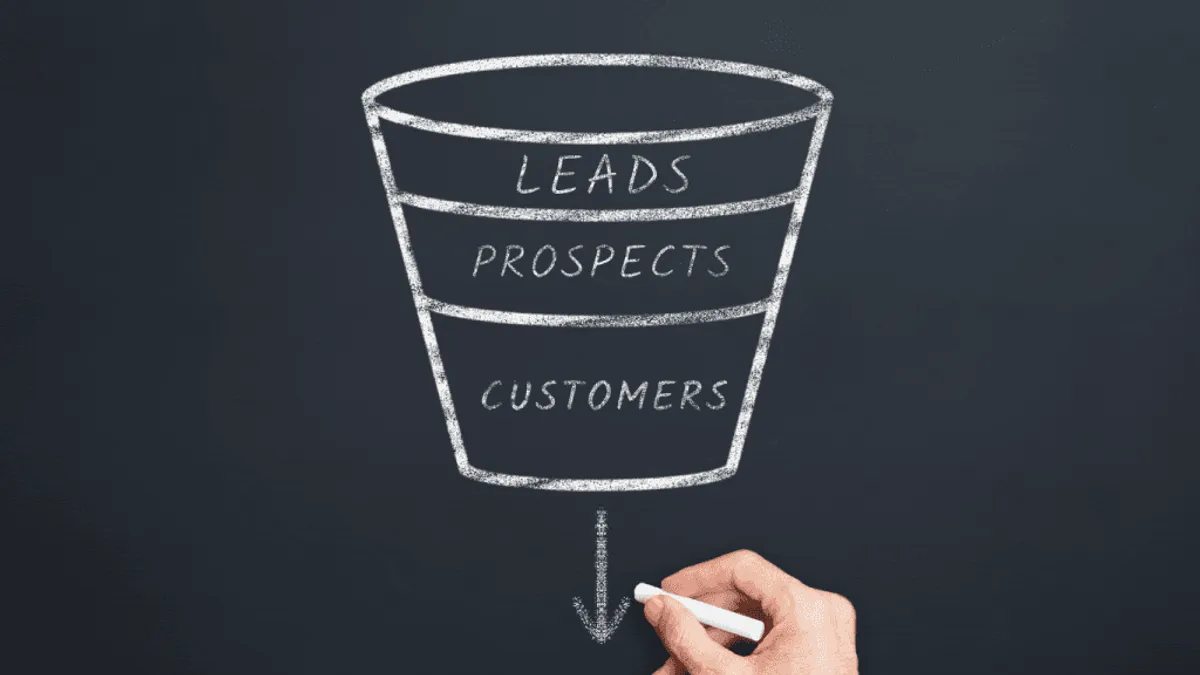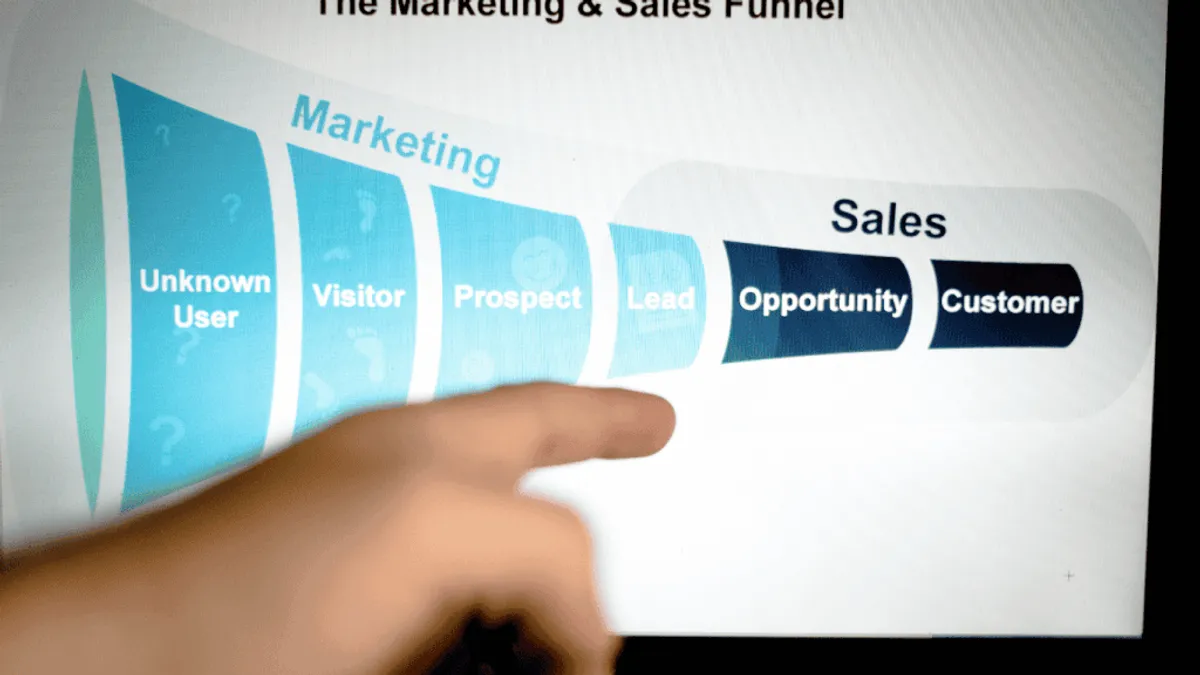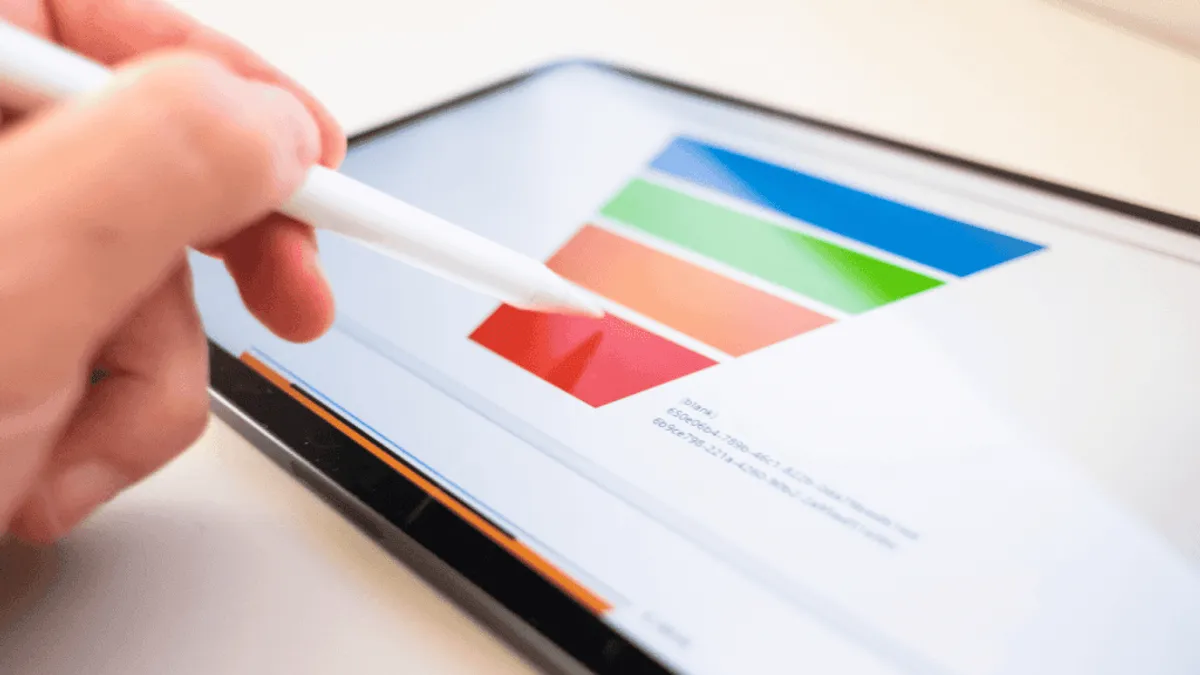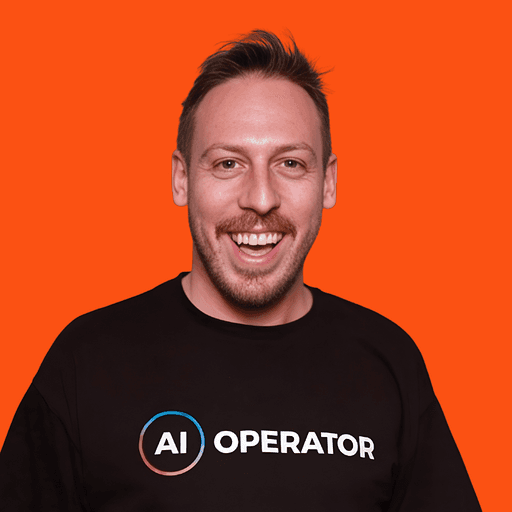Learn how AI-powered sales funnels boost lead generation, qualification, and nurturing. Discover top tools to personalize experiences and scale your business.
The future of sales and marketing is here and now. Yes, we’re talking about how AI. Aside from radically transforming customer service and human resources, AI has found its way to transforming sales funnels. The AI-powered sales and marketing funnel is a game-changer for B2B and B2C growth teams—and it’s high time for you to jump on this wagon because it’s not going away anytime soon.
Imagine having a magical ingredient that could transform the way you attract, engage, and convert potential customers. Well, it’s not magic, but it might just be the closest thing to it in the world of sales and marketing.
In this guide, we’re going to dig into the exciting world of AI-powered sales funnels. We’ll break down what a sales funnel is and how it works, explore its critical stages, and then go into how AI can enhance the world of sales funnels as we know it.
What is a sales funnel and how does it work?

A sales funnel is essentially a pathway that takes your potential customers on a journey from the first time they hear about your business until they complete a purchase. It’s a visual representation of the steps a potential customer goes through, starting with awareness and ending with conversion.
Here’s a sales funnel example:
- A business owner is browsing their Instagram or Meta feed and sees an attractive paid ad for an eBook on leadership and top project management tips for 2024.
- The business owner finds the ad fun and clicks on it, which leads to a landing page where he can fill out his details and get the eBook in his inbox.
- He receives the eBook and finds value in it. Then he receives a series of three to four emails in his inbox emphasizing some key points in the eBook.
- The last email he receives invites him to book a call with the creator of the eBook—a SaaS company offering a new project management tool.
- He books a call with a sales rep, and they engage in a few back-and-forths and negotiations before the business owner decides to sign up.
True to its name, the sales funnel is indeed shaped like a funnel—which is also like an inverted pyramid. The concept is simple—if 1000 people discover your business via an ad, let’s say around 500 will click on it. Then, maybe around 100 will sign up to book a call with your sales team. Around 50 will show up on the call, and maybe 10 will sign up for your service or buy your product.
So the top of the funnel is the widest part, and it tends to narrow down as you approach conversion.
That being said, an AI-powered sales funnel is a sales funnel with AI tools powering each stage.
What are the stages of a sales funnel?

Let’s take a closer look at its individual stages and how a sales funnel works. These stages are like milestones on the road to conversion, and understanding them is essential for optimizing your funnel and overall sales process.
1. Awareness
At the very top of the funnel, the goal is to generate leads and create brand awareness. The awareness stage is where potential customers first discover your business, often through marketing efforts.
Whether it’s through paid ads, social media posts, search engine results, a lead magnet, or word of mouth, the key is to make a memorable first impression on your target audience.
2. Interest
As prospects move down the funnel, they transition from awareness to genuine interest. They might start researching your offerings or comparing your products or services with your competitors. The interest stage is where the marketing strategy needs to include providing valuable content and engaging with potential customers.
They might visit your website, engage with your content, or sign up for your newsletter. Your job is to nurture this interest by providing valuable information and addressing their pain points. Most of the marketing assets that can help fuel prospects’ interest are case studies and video testimonials from existing clients.
3. Decision
Now, your leads are at the point where they are already considering their options. They’re closer to making a decision but might need a little nudge. You need to demonstrate why your product or service is the right and the best choice for them.
Customer stories, social proof, product demos, free trials, and outlining clear benefits all play a crucial role in helping them decide in your favor.
4. Action
At the bottom of the funnel, prospects are ready to take action—be it making a purchase, signing up for a service, or getting in touch with your sales team. This is the ultimate conversion point, and it’s where your efforts throughout the funnel pay off.
Traditionally, this is how the sales funnel has always been visualized—with a clear, linear progression from awareness to action. However, in the AI-powered era, this model is evolving into something more dynamic. AI’s ability to analyze data and provide personalized experiences means that prospects can move back and forth between stages, and the journey then becomes more fluid.
The big question is this: How can AI enhance each of these stages and turn them into powerful tools for scaling your business?
The role of AI in sales funnels

AI is here to revolutionize the way you handle each stage of your sales funnel, making it more efficient and effective. Let’s break down the specific roles AI plays in enhancing your sales funnel:
Lead generation
Traditional lead generation methods can be time-consuming and hit-or-miss. AI, on the other hand, can analyze vast amounts of data to identify potential customers who are more likely to convert.
This not only saves time but also ensures that your sales team is focusing on the most promising leads. You’ll be looking at a pretty full sales pipeline pretty soon.
Lead qualification
AI doesn’t just stop at generating leads—it also excels at lead qualification. It uses predictive analytics and data-driven insights to determine which leads are the best fit for your products or services.
This means your sales team can work smarter, not harder instead of manually sorting. They get to focus on prospective customers and qualified leads with the highest potential for conversion.
Lead nurturing
It’s no secret that lead nurturing is really effective. Companies that are great at lead nurturinggenerate 50% more sales-ready leads at 33% lower costs.
One of the most impressive things AI can do is personalize the lead nurturing process at scale. Instead of SDRs nurturing leads manually, AI can swoop in and nurture multiple leads at the same time—all without sacrificing the human touch.
It can analyze user behavior and preferences to help sales reps create and deliver tailored content and recommendations throughout the customer journey. This not only keeps your leads engaged but also increases the likelihood of conversion. AI-powered chatbots and email management tools can also be included and leveraged to conduct a nurture strategy that works.
Sales assistance
AI can assist your sales representatives by providing them with sales insights. It can suggest the next steps to take and even automate routine tasks like data entry. This allows your salespeople to concentrate on building relationships and closing deals.
Chatbots and virtual assistants are becoming indispensable in sales funnels. After all, they can engage with potential customers 24/7, answer questions, and guide them through the decision-making process. This round-the-clock support not only enhances the customer experience but also keeps your sales funnel active at all times.
Conversational and generative AI tools like ChatGPT also provide sales managers with AI assistants. For example, there are prompts that can be used to craft outreach messages and even follow-ups to target prospects.
Predictive analytics
AI’s predictive analytics capabilities are a game-changer when it comes to decision-making. It can analyze historical data, customer behavior, and market trends to predict future outcomes. While sales teams can no doubt conduct analysis as well, it will definitely take a long time. With AI,
This means you can make informed decisions about your marketing strategies and tailor your approach to what’s most likely to work with target customers.
How does an AI-powered sales funnel benefit your business?

You can create more personalized customer experiences
A recent report shared that 92% of companies are already using AI-driven personalization in their sales process to drive growth. This is not surprising, given that 91% of consumers are more likely to do business with brands that provide relevant offers and tailored recommendations.
AI-driven personalization tailors content to each of your individual customers. Such tailored content includes product recommendations, email content, and website experiences. This helps increase engagement and customer satisfaction—which can significantly boost your sales.
You will have better-optimized sales processes
AI can automate routine tasks, such as data entry and appointment scheduling, freeing up your sales teams to focus on building relationships and closing deals. This leads to increased productivity and more efficient sales processes for your business.
With these systems in place, your marketing team can focus on implementing campaigns and strategies, while your prospective customers are guided by AI down the funnel and the buying process.
It will improve your customer retention
B2C and B2B businesses run on the same sales funnels, but B2B—especially subscription businesses double their effort after conversion because they need to invest in customer retention as well.
AI-powered chatbots and automated email sequences can provide ongoing support and recommendations to your customers post-purchase.
Additionally, AI tools can predict which customers are most likely to churn and help you implement strategies to retain them. Whether it’s through personalized offers, loyalty programs, or re-engagement campaigns, an AI-powered sales funnel keeps your loyal customers coming back for more.
Examples of AI-powered sales funnel tools and platforms for your sales funnel

The beauty of AI is that it’s not just a theory; it’s a practical solution that you can integrate into your own business now. Here are some real-world examples of AI-powered tools and platforms that can take your sales funnel to the next level:
Funnel creation
- ClickFunnels: ClickFunnels is popular for a reason—because it has everything that businesses need to create sales funnels with ease. Features include landing page creation, email marketing, webinar hosting, and a wide range of integrations. This tool also has comprehensive AI-powered features such as lead scoring, email automation, and chatbots. Sales funnel examples are also plenty and easily accessible.
- Akkio: Akkio is a no-code AI platform that uses generative AI to help businesses generate reports and predict key business outcomes simply by plugging in your existing data. Other noteworthy features include augmented lead scoring, forecasting, and churn reduction.
- Systeme: Systeme is an all-in-one marketing tool that has features for creating sales funnels and landing pages, implementing email marketing campaigns, building online courses, automating business tasks, and running evergreen webinars.
Chatbots and virtual assistants
AI-powered chatbots like Drift or Intercom can engage with your website visitors in real-time. They can answer your visitors’ questions and even qualify leads for you. Chatbots use natural language processing to provide personalized assistance and then route qualified leads to your sales representatives.
Email marketing automation
Platforms like Mailchimp and HubSpot use AI to segment email lists, personalize email content, and optimize send times. Their AI can also predict which email subject lines and content will perform best for different segments of your audience—definitely useful for tailoring your marketing strategy.
Predictive lead scoring
AI tool platform LeadCrunch uses AI to analyze and score leads based on their behavior, demographics, and interactions with your website and content. This helps your sales teams zero in on the high-value leads so they can prioritize them.
Personalized product recommendations
You can use AI to provide personalized product recommendations to your new customers, website visitors, and even existing customers. Product recommendations are not only useful before a purchase but even after the purchase stage Amazon is a prime example of this, with its “Customers who bought this also bought” feature.
Social media advertising
Facebook and Google Ads use AI to target advertisements to specific demographics and interests. They also provide tools to help you automatically optimize your ad campaigns for better performance.
Customer relationship management (CRM)
AI-powered CRM systems, like Salesforce Einstein, use AI to manage your customer interactions. Customer data and customer relationships also fall within its management scope.
You can then give paying customers more personalized customer experiences throughout the entire customer journey.
Sales forecasting
AI-powered sales forecasting can predict future sales, customer demand, and inventory requirements. It helps you make informed decisions and optimize inventory management. Overall, it’ll help you plan marketing strategies with greater accuracy. Salesforce and Zoho CRMoffer AI-based sales forecasting features.
It’s time to power up your sales funnel with AI

The exciting part is that we’re only scratching the surface of what AI can do. As technology continues to evolve, so will the capabilities of AI in sales funnels. Future trends, like even more advanced personalization, improved natural language processing, and AI-driven content creation, promise to take the sales funnel to new heights.
So if you’re looking to scale your business and stay ahead in a competitive market, embracing AI in your sales funnel is no longer an option—it’s a necessity. AI isn’t just the future; it’s the present, and it’s here to help your business thrive.
So, whether you’re a small startup or a well-established enterprise, it’s time to explore the world of AI-powered sales funnels to propel your business forward.
The secret sauce is no longer a secret—it’s AI, and it’s yours for the taking. Whether you’re already aware of it or not, your business may already be using some level of AI-powered assistance in creating your own sales funnel. All you need to do now is further optimize these AI-powered systems or even integrate more tools that synergize well with your company’s needs.
AI opens up a lot of profitable opportunities for your business—let’s make sure you don’t miss out on any of them. Contact AI Operator and start integrating AI-powered to create a sales funnel that funnels growth.
More Articles

Zapier: How to build AI-powered automations in less than one hour
Build AI-powered Zapier automations in under an hour. Step-by-step guide to automate emails, leads, and workflows with AI intelligence.

Claude for work: How to use Claude Skills and Artifacts to 10x team efficiency
Learn how to use Claude Skills and Artifacts to automate team workflows. Step-by-step guide to building reusable tools without code for 10x efficiency.

AI Connectors 101: Turn your LLM into a business powerhouse
Connect ChatGPT and Claude to your business tools like Gmail, CRM, and Notion. Learn how AI connectors automate workflows and save hours per week.

